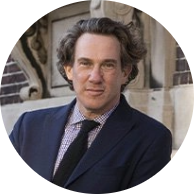
ESTATE PLANNING FOR YOUR POSSIBLE FUTURE
Part of the job of estate planning is thinking through the different ways the future might work out - who will survive whom, whether a beneficiary will be a minor or an adult at the time she receives the bequest. It’s important to take a range of possibilities into account. For this reason, I have crafted my documents with a number of provisions to address these contingencies.
The classic ones are to provide that assets will be held in trust for anyone who has not reached the age of 30 and to provide that the gift for a predeceased beneficiary will flow through to their children. Others that I have crafted include:
details of how trust funds can be used to advance your values and prevent indulgence and entitlement
how gifts for a predeceased beneficiary should be redistributed to the surviving beneficiaries
how the executor can exercise discretion to hold assets for a beneficiary who is experiencing personal or financial troubles
how a charitable gift may be redirected if the named organization has ceased to exist.
All of that said, there’s no end to the alternate futures we can imagine, and it’s not necessary to plan for all of them. It’s almost always possible to address the vast majority of contingencies with a few well-designed provisions.
 Ron L. Meyers
Ron L. Meyers
Ron Meyers graduated from Columbia University in 1992, from Harvard Law School in 1999, and has been practicing law in New York City since 2000. He worked for several years in major law firms on commercial real estate matters, such as the World Trade Center, the creation of the High Line and the redevelopment of Times Square. He turned to private-client work in 2007, opening his own practice in 2009, where has now served over 1,000 clients. He and his team handle estate planning, probate and residential real estate matters for individuals, couples, and families of all kinds.
